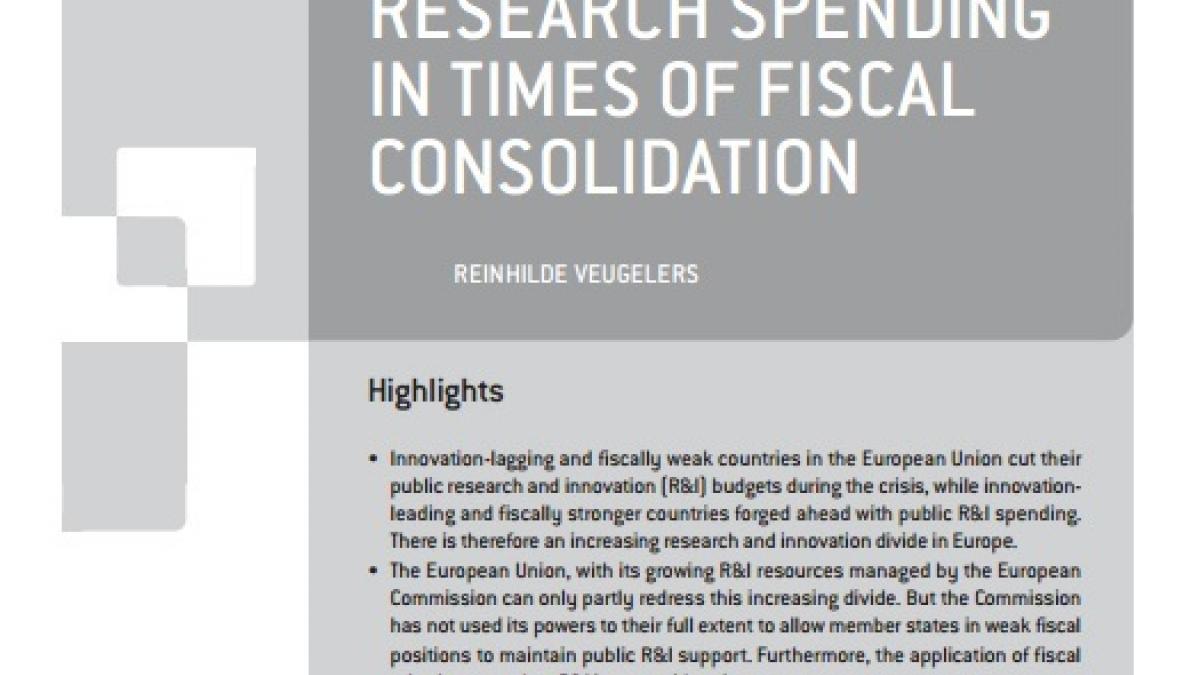Undercutting the future? European research spending in times of fiscal consolidation
Are R&D budgets being smartly used to address growth? How is the crisis affecting public Research & Development budgets across the EU?

The crisis seems to have widened the gap between EU countries in public R&I expenditure. Even though the EU budget serves as mechanism to somewhat ease the growing public R&I divide in Europe - EU funds are relatively more significant for innovation-lagging countries with low national R&I budgets - it is crucial to assess whether the effectiveness of these R&I programmes.
Understanding the degree to which public R&I budgets in the EU have been used ‘smartly’ during the crisis and whether the EU has made ‘smart’ recommendations on public R&I in the European Semester requires an assessment of the long-term impact on growth.
Smart consolidation featuring R&I investment needs to take a long-term perspective and to have sound evaluation frameworks in place to assess whether the potential for high growth returns from public R&I are indeed being realised. Evaluating the effectiveness of public R&I budgets should go beyond assessing short-term additionality impacts. Smart fiscal consolidation by EU member states should include assessments of the longer-term social rates of return.



